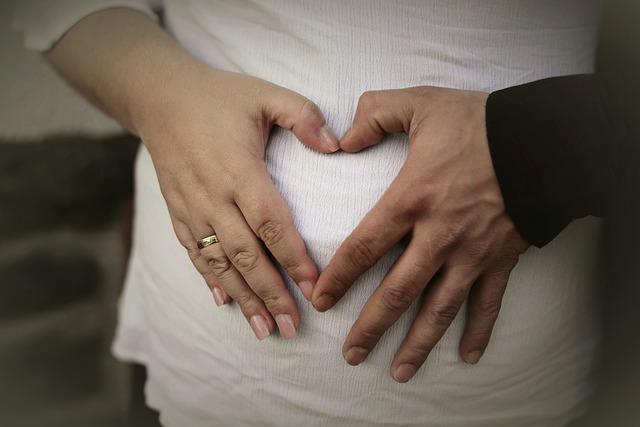The normal regulation of the menstrual cycle is maintained by different hormones and is one of the key physiological management of female health.
Hormonal imbalance is one of the primary causes of female infertility along with other co-morbidities including obesity, reduced libido, aging, and hair loss.

What is a hormone?
A hormone is a chemical secretion of the body released from different ductless glands and regulate our multiple biological functioning.
A hormone has specific functioning depending upon the gland from where it secretes.
In general, adrenal glands, thyroid glands, pituitary glands, and pancreas secrete hormones in both the male and female bodies.
But testicles in males and ovaries in females secret sex hormones.
Every hormonal gland has both independent and interlinked functioning.
What do you mean by a hormonal imbalance?
An abnormal secretion of the hormone is called hormonal imbalance.
Both excessive or scanty secretion of hormone negatively affects biological activity.
The consequences and the intensity of a hormonal imbalance depend on the affected gland.
But the negative effect of the hormonal imbalance is usually vast.
As, disturbance of the insulin secretion from the pancreatic gland causes diabetes, which has multiple complications that affect many organ systems of our body.
Why is female hormonal imbalance a critical condition?
Both males and females can have hormonal imbalance issues. Hormonal imbalance is common with aging and in certain disease conditions like diabetes, hyperthyroidism, and hypothyroidism.
But significant hormonal changes in the female body occur during puberty, pregnancy, and menopause and cause hormonal imbalance.
Every woman has hormonal changes during the monthly cycle.
Estrogen and progesterone gradually raise at the end of the cycle. The significant elevation of estrogen is noticeable during the middle of the monthly cycle, as it promotes ovulation or egg release.
Eventually, the decreasing estrogen level stimulates progesterone release to prepare favorable conditions in the womb for fertilization.
If fertilization does not take place, the progesterone level also declined at the shedding of the womb leading to the beginning of the menstrual cycle.
But maintenance this hormonal balancing is not an easy task.
As stress, aging often alters this hormonal balancing.
Impaired adoption of the body due to hormonal imbalance can alter female fertility.
Thus, female hormonal imbalance is medically considered a critical condition.
What are the hormonal imbalances affecting female reproductive health?
Luteinizing hormone (LH) and follicular stimulating hormone (FSH) are two hormones, which stimulate gonadotrophin-releasing hormone secretion and play an important role in reproductive functioning and menstrual cycle regulation.
Estrogen and progesterone are two gonadotropins that help in pregnancy.
There are multiple clinical evidential reports that support imbalance of these hormones causes multiple reproductive disorders and negatively affects female fertility.
In addition, prolactin and thyroid-stimulating hormone (TSH) are also two important hormones often included in nostic testing to evaluate the underlying cause of female infertility.
The imbalance of thyroid hormone has direbeen city associated with reproductive dysfunction and conception trouble.
Hyperthyroidism causes a short menstrual cycle and clinically the condition is termed hypomenorrhea and polymenorrhea.
But infrequent menstrual cycle (oligomenorrhea) is a major problem in hypothyroidism.
Thus, both hyperthyroidism and hypothyroidism can adversely affect female reproduction functioning and menstrual disturbances by inducing anovulatory (absence of ovulation) cycles and impaired fertility.
Not only conception, problems, but thyroid abnormality often leads to pregnancy-associated hypertension, spontaneous abortion, the distress of fetal in labor, premature delivery, low birth weight, etc.
Whereas, hyperprolactinemia reduces Gonadotropin-Releasing Hormone (GnRH) secretion and hinders ovulation.
Medical researchers also find a link between hyperprolactinemia and obesity. Therefore, multiple hormones are involved in female health.
How one can understand the consequences of hormonal imbalance?
The consequences of hormonal imbalance completely depend upon the particular hormone dominance.
In case of continuous secretion of estrogen, even after ovulation leads to high estrogen level and cause pain, heavy, periods, mood swings, irritability, sore breasts, accumulation of fluid, etc. But in the case of low secretion of estrogen, ovulation does not take place and fertility issues arise.
Similarly, insufficient progesterone prevents fertilization of eggs and also causes impaired implantation and leads to failure of conception.
However, an increase in the level of progesterone also causes the condition, low emotional status, polycystic ovarian syndrome (PCOS) occurs due to high testosterone levels and causes facial hair growth, acne formation, sudden weight gain, etc, and hinders female fertility.

Ravi Sharma is a self-motivated, successful entrepreneur and has a solid experience in the fertility segment. and he is the director at ARTbaby Global (ARThealthcare). He is a pharmacy graduate with post-graduation in business administration and has 14 years of rich experience in the field of infertility segment. He loves to write about IVF, Surrogacy, and other ART (assisted reproductive technology) news, issues, and updates. He is a Pharmacy graduate (B. Pharm) and M.B.A (marketing).
His most recent success includes the successful launch of the medical tourism company, ARTbaby, which offers treatment options for infertility, egg donation, and surrogacy. He likes spending time with his family and writing about various aspects of IVF surrogacy and donating eggs.
